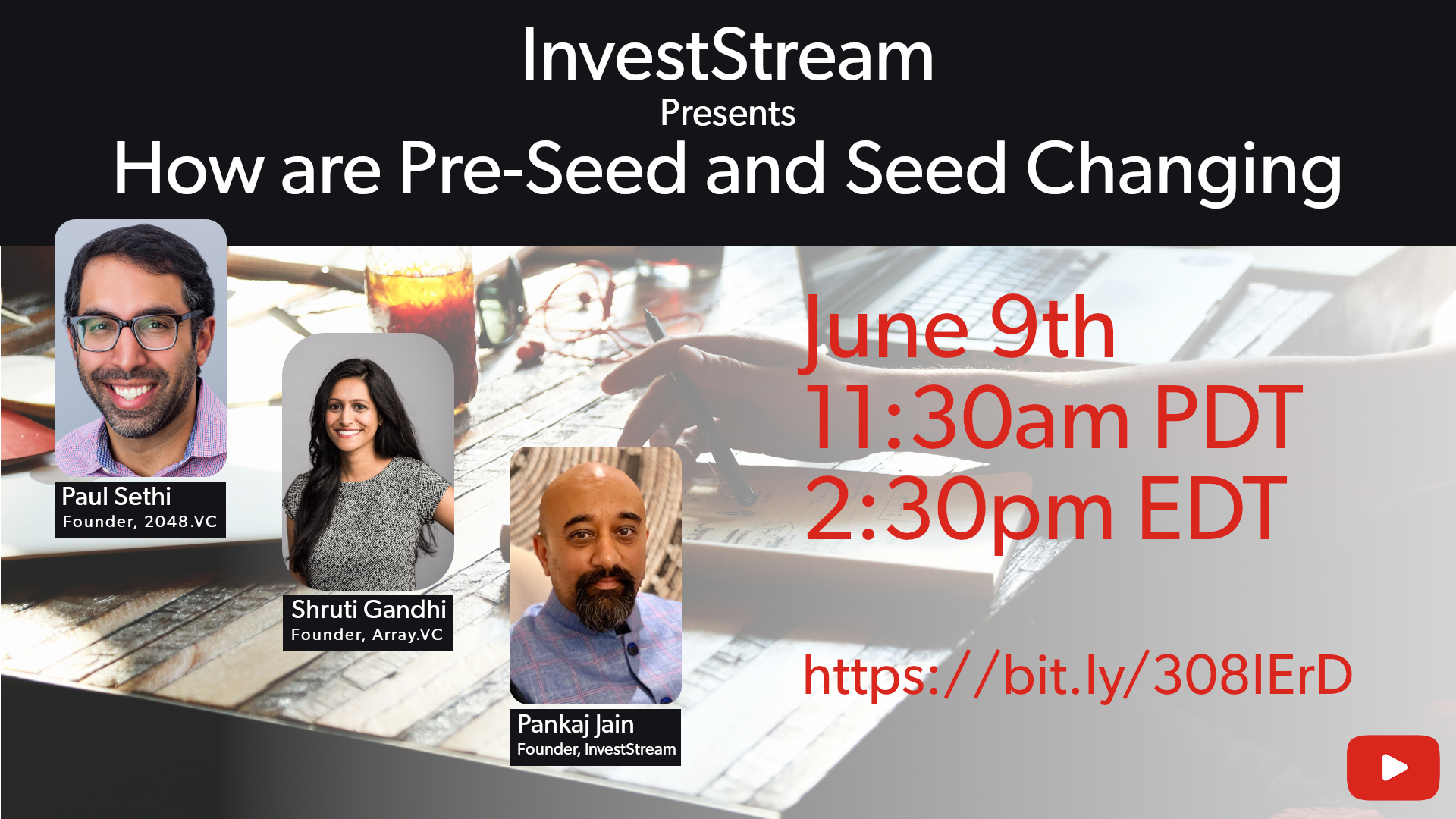Tag: Founders
-

Founders Doing Due Diligence On Investors
Doing due diligence on investors is something that should be discussed more frequently. It’s important for founders to take the time to understand who the investors are, how do they help and support the companies they invest in, how do they react when things aren’t going as well as hoped for. Spending some time doing…
-

How are Pre-Seed and Seed Changing in 2020?
A lot is changing in the startup world. Even before getting hit with COVID-19, the definitions of pre-seed, seed, post-seed/pre-series A were changing at a fast clip. Many early-stage VCs were moving downstream, writing larger checks and investing in later rounds. At the same time, larger, late-stage VCs were either ramping up their scout programs…
-
Angel Investing in Indian Startups 2020
Angel investing in Indian startups has been growing rapidly over the last 5 years. The risk capital these individuals, family offices and angel networks provide, has been invaluable to countless startups in India. However, with the COViD-19 lockdowns across the globe, startups have faced immense pressure from existing investors, primarily, because many expect the pace…
-
Fundraising to Protect IP
via IFTTT IP Protection can be something very important for a startup but it can also be a very expensive thing to do and do right. Some tech startups consider raising money primarily for filing patents and other intellectual property protections while others think it might be a good idea to raise money from angels…
-
Why should founders update [all of] their investors regularly?
via IFTTT VCs and angel investors take risks when they invest money into a startup. Most VCs (but not all) get access to updates through “information rights”, at least until a certain point in time. However, angels don’t always have a legal right to updates about how a company is doing. On this episode of…